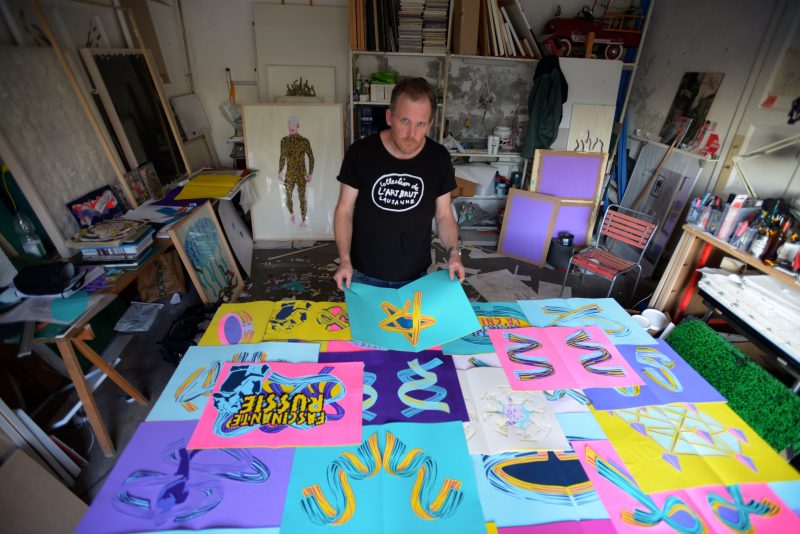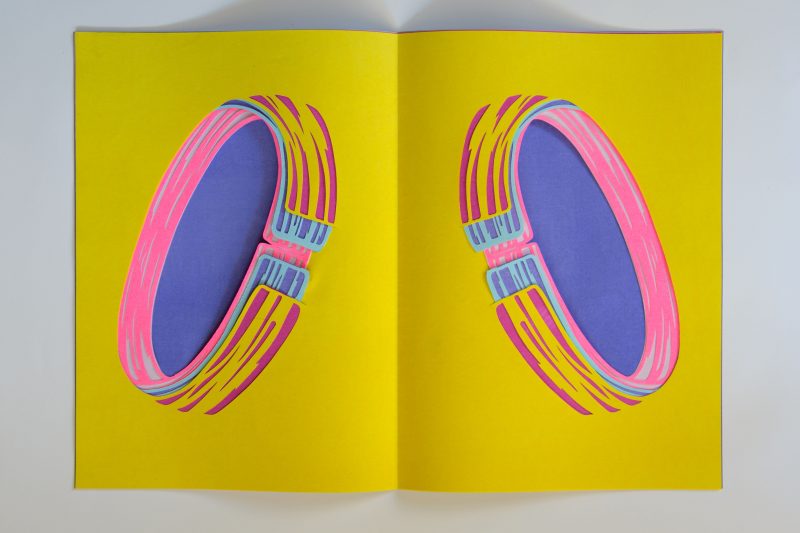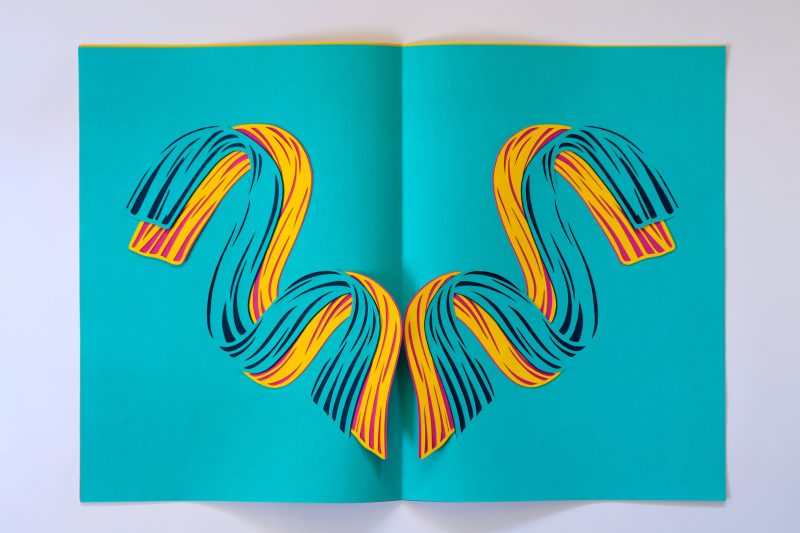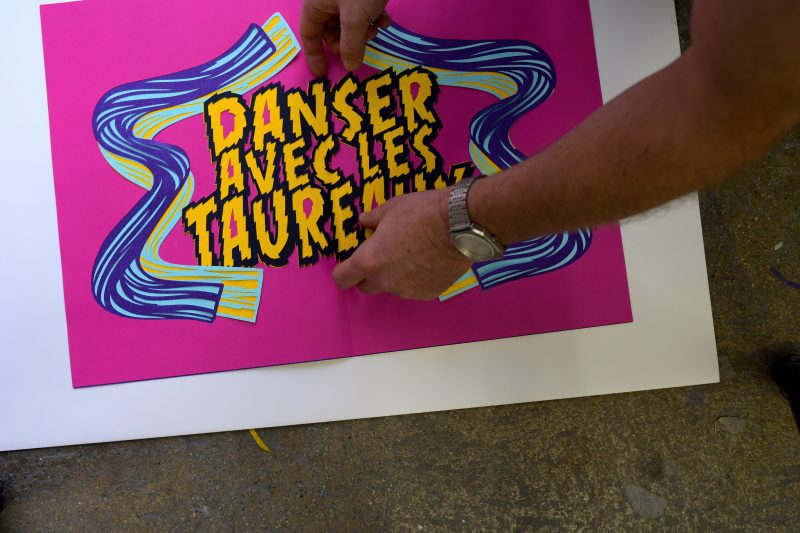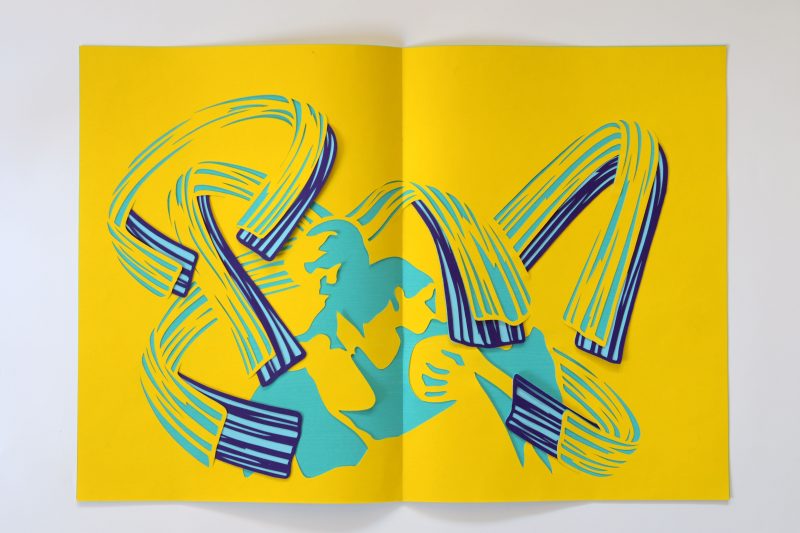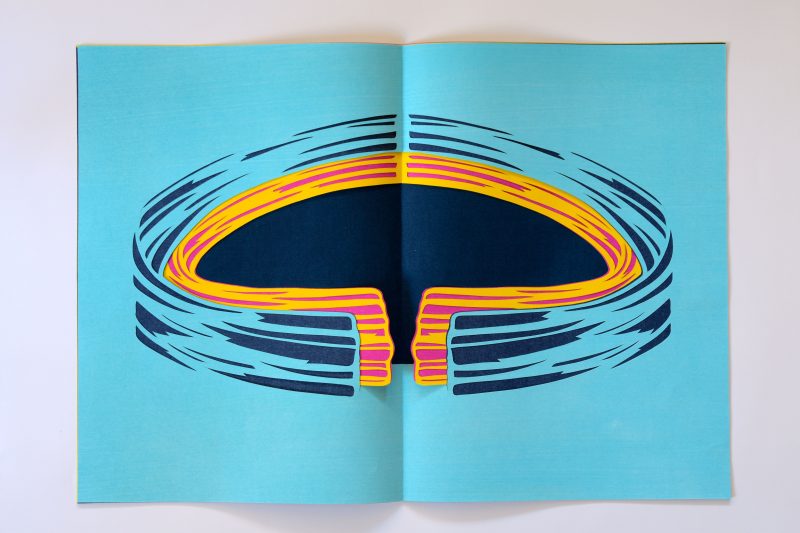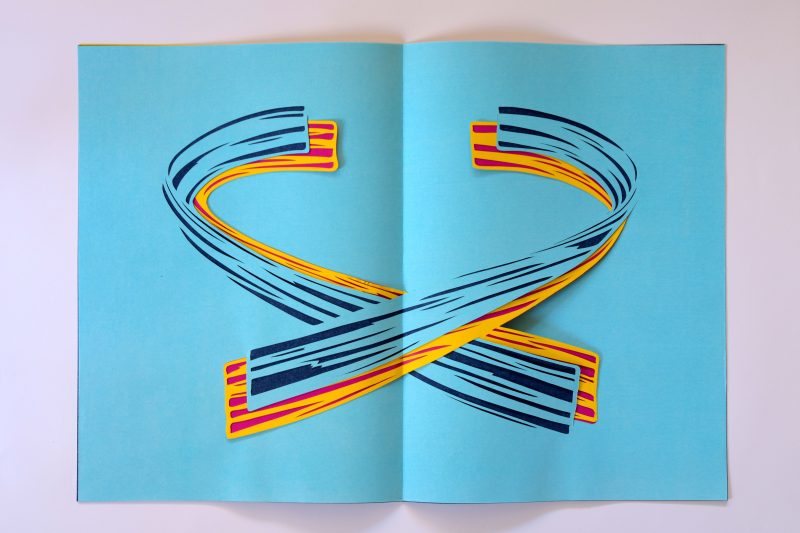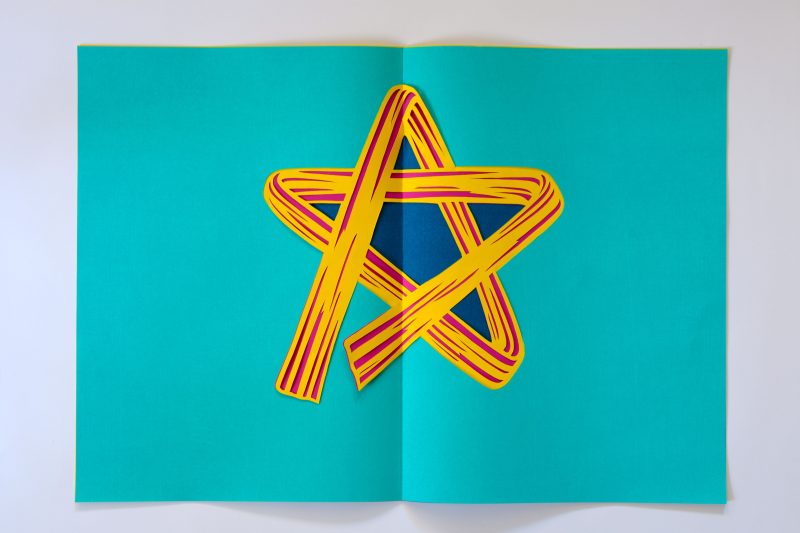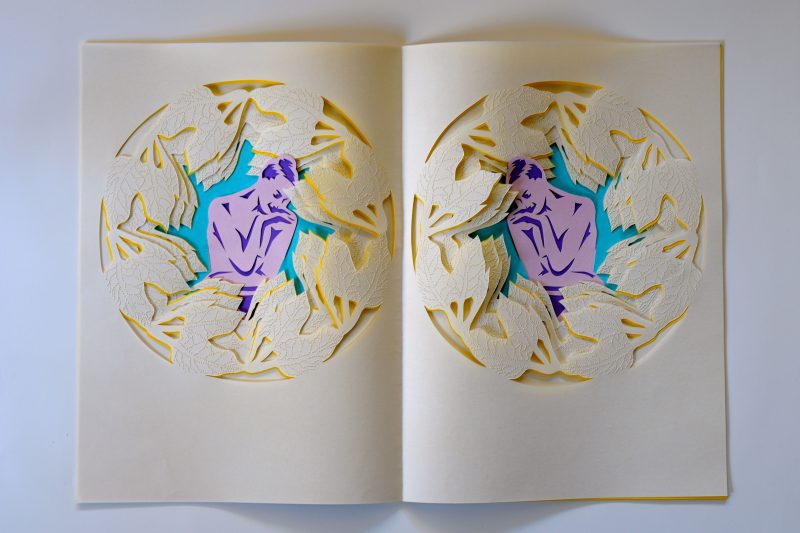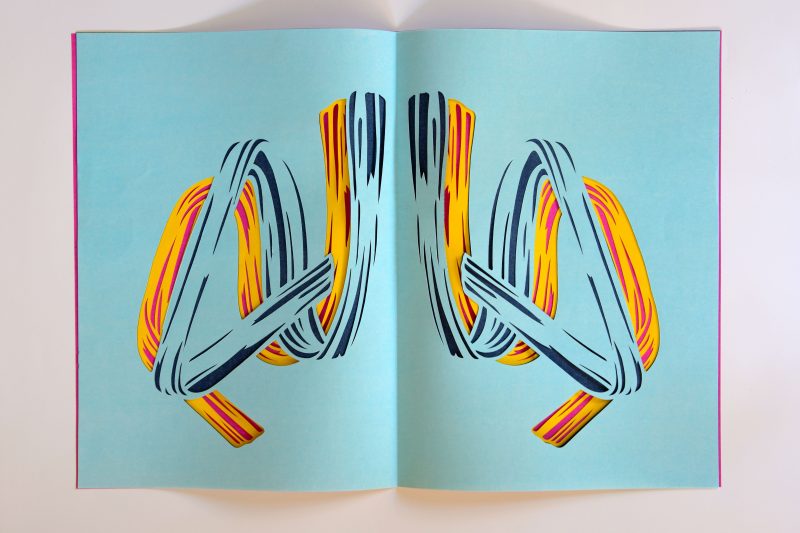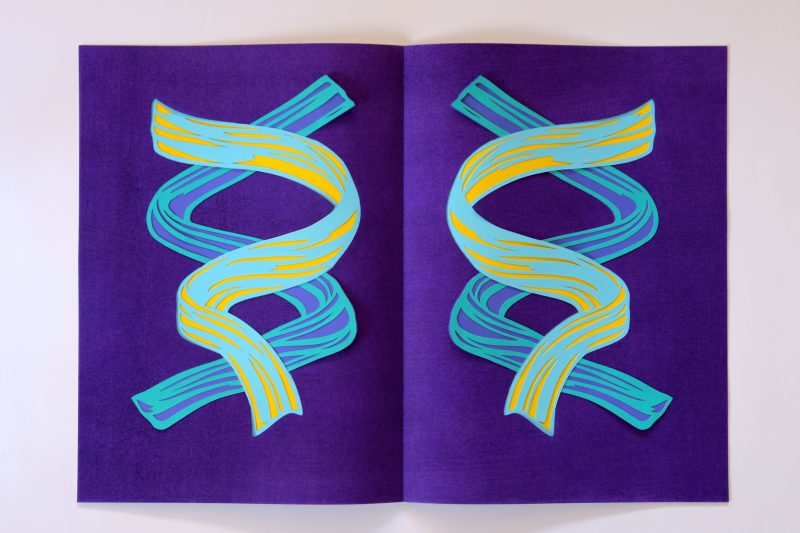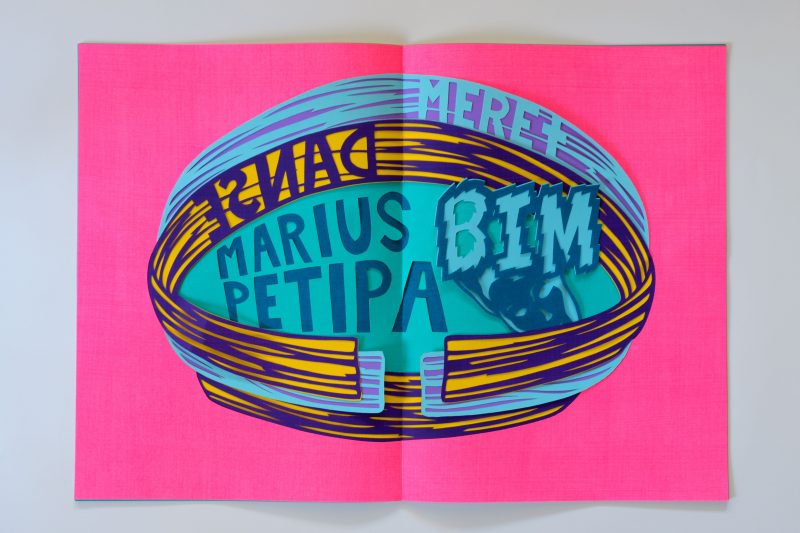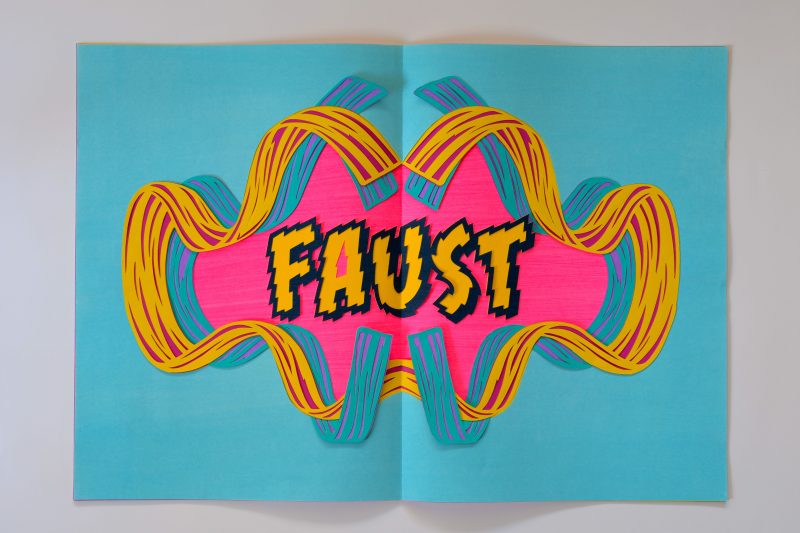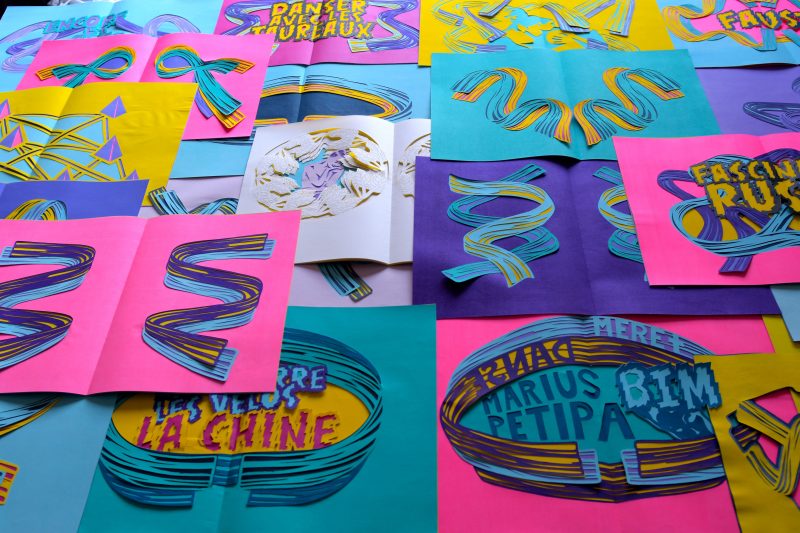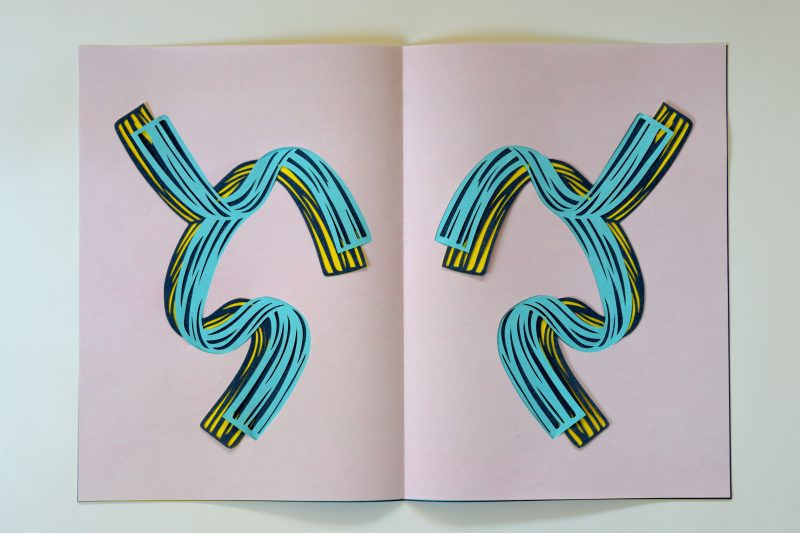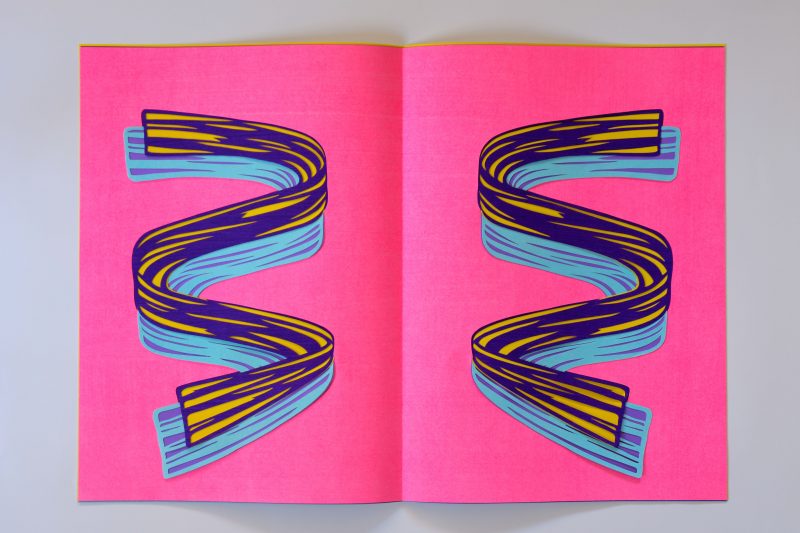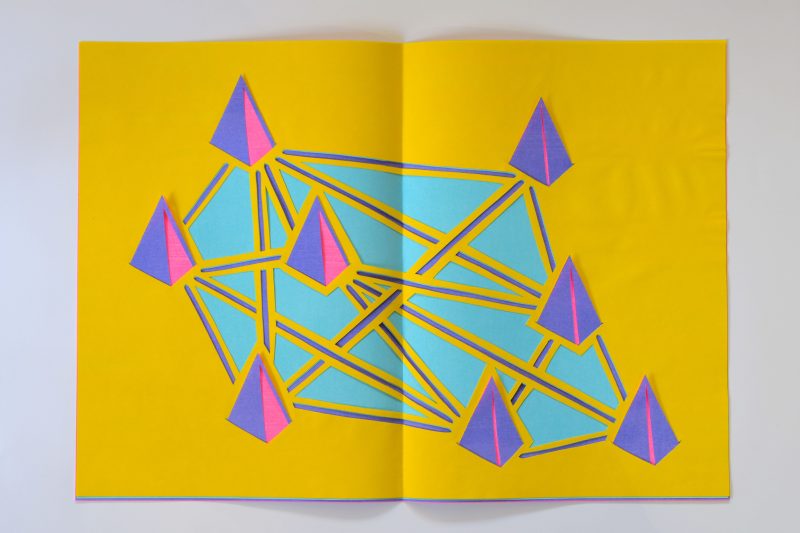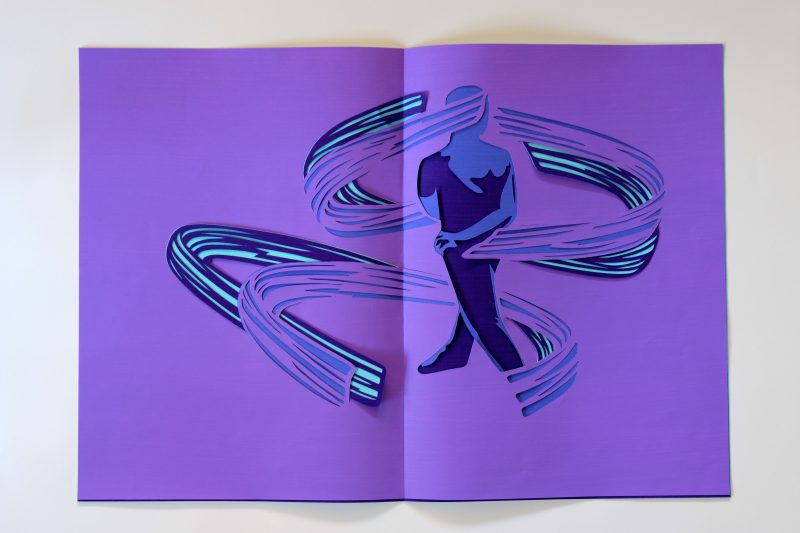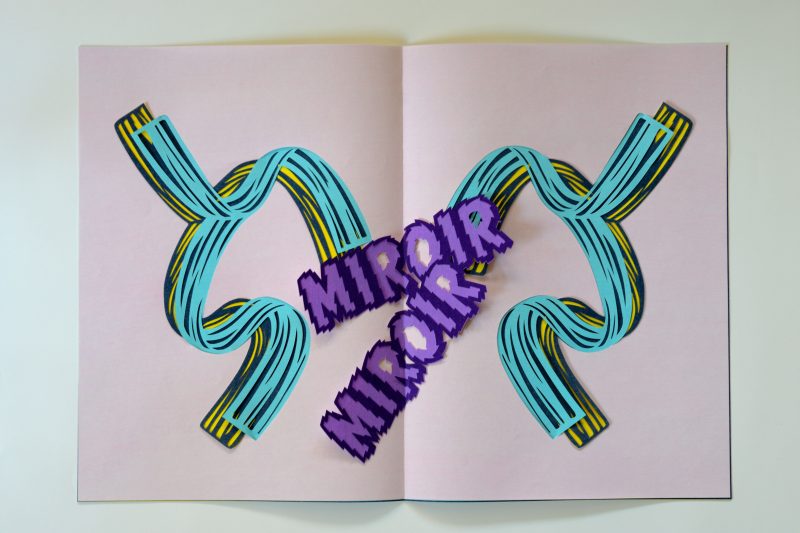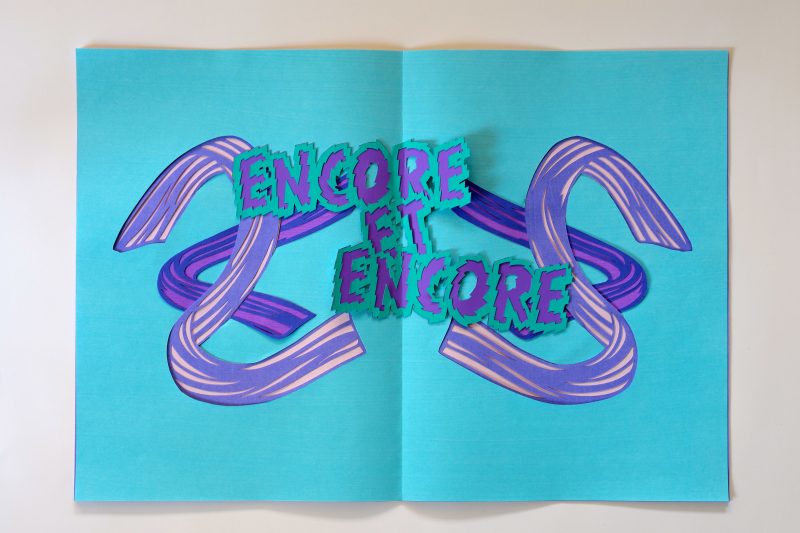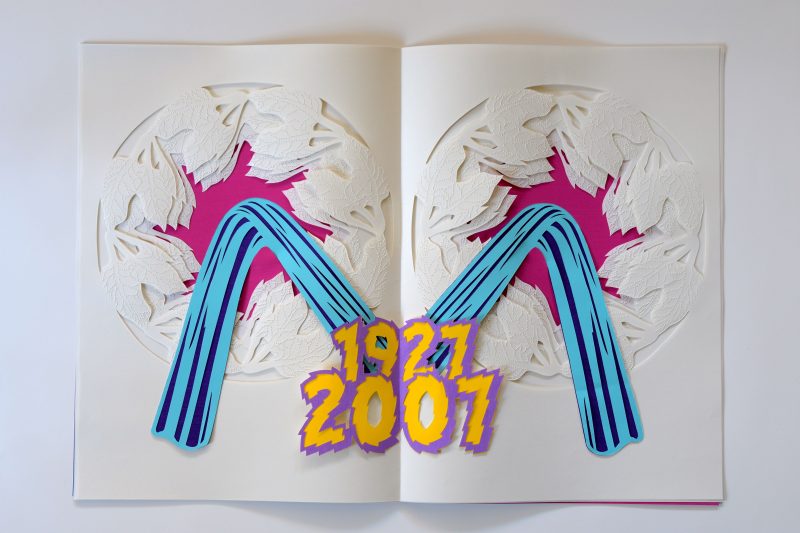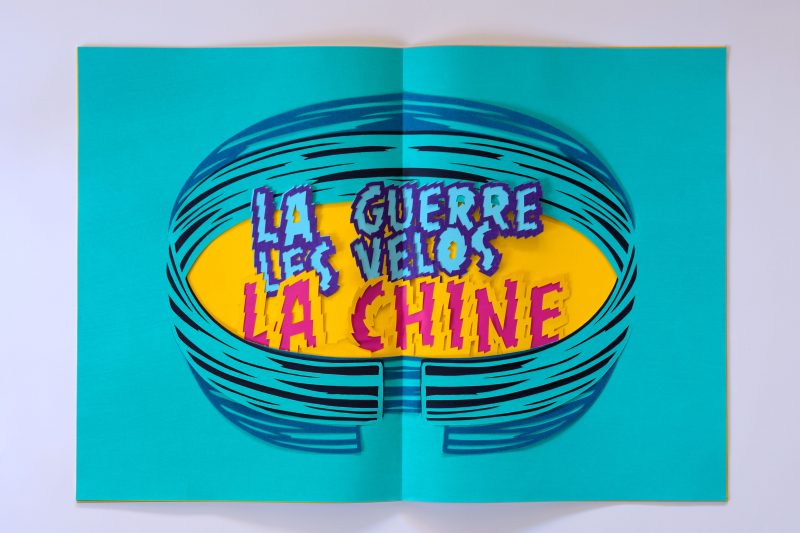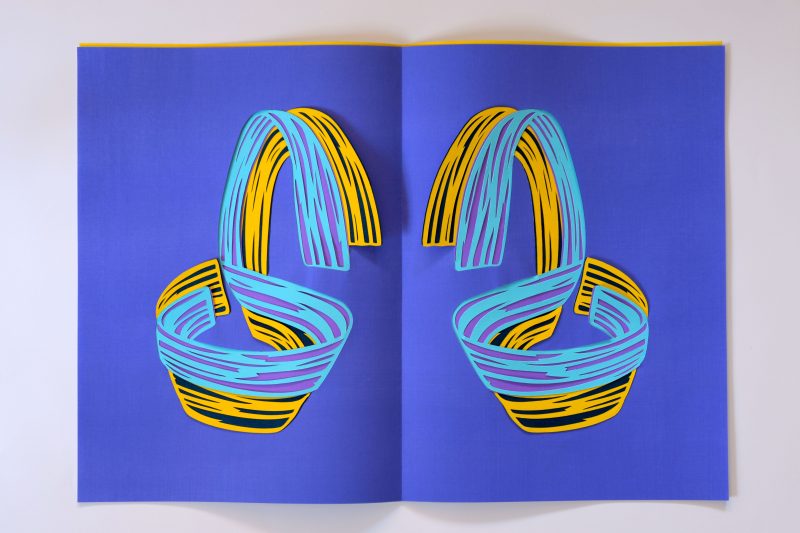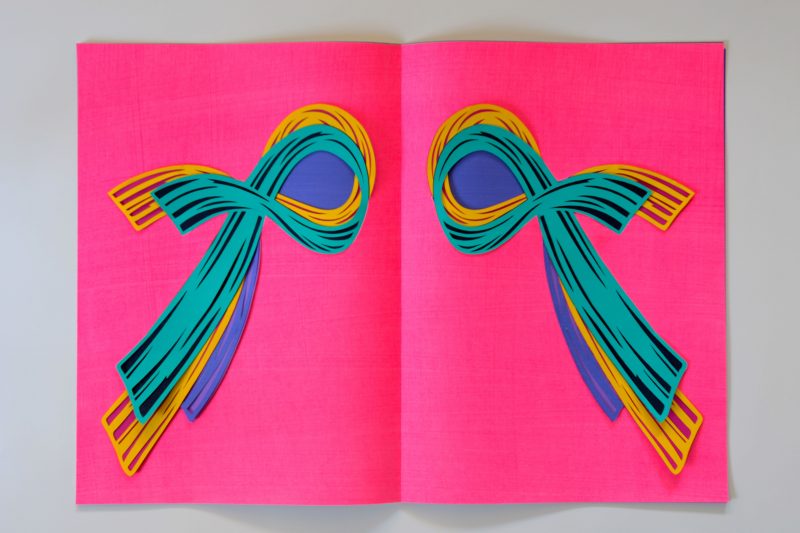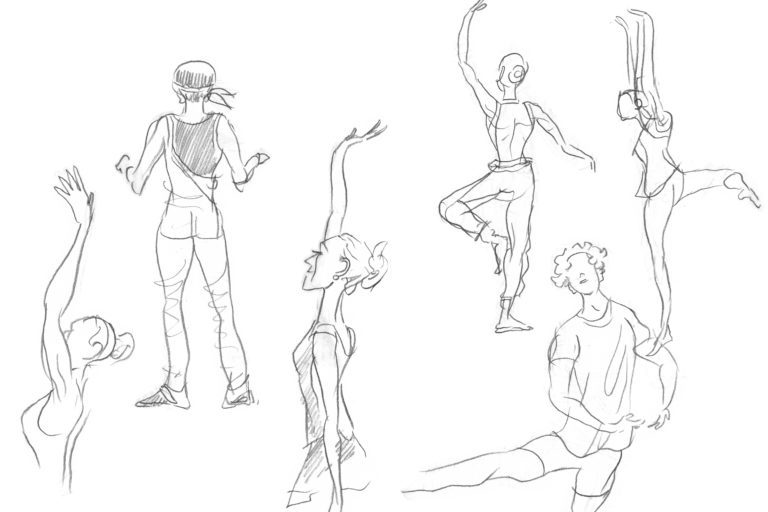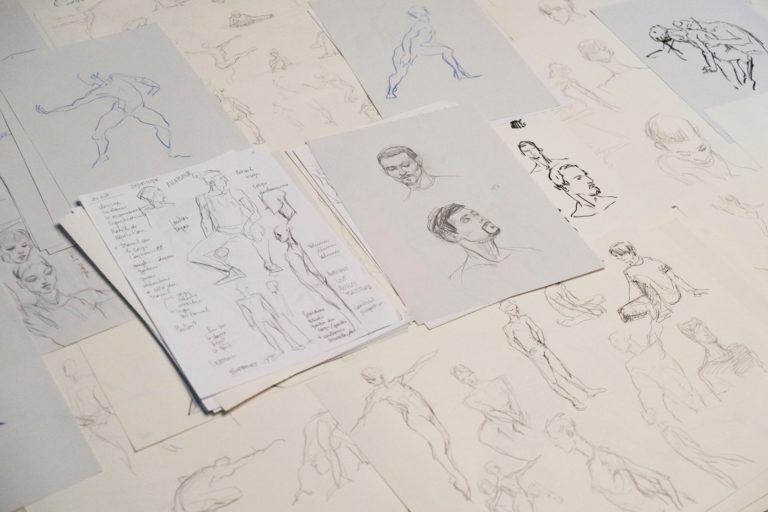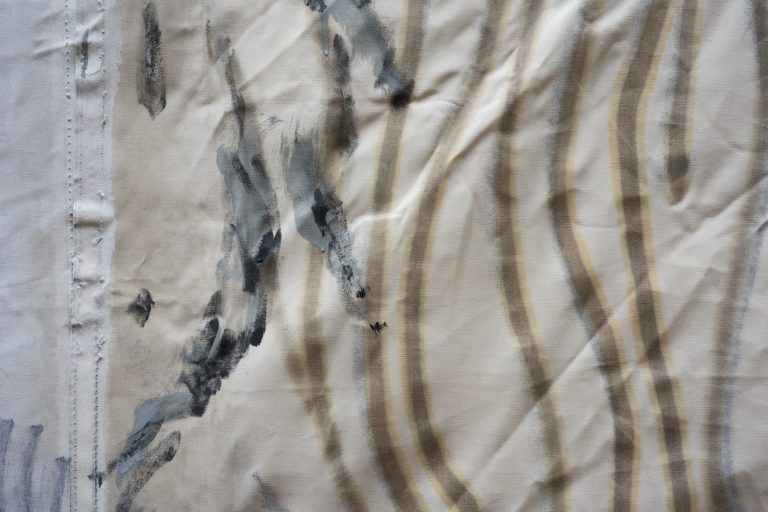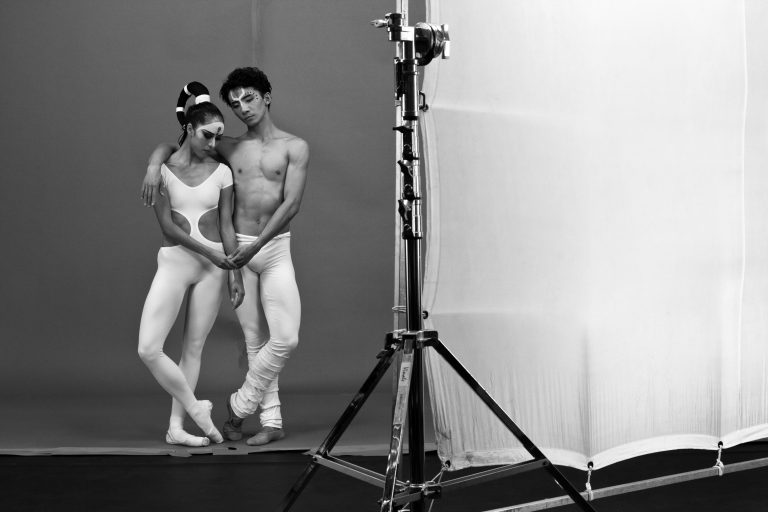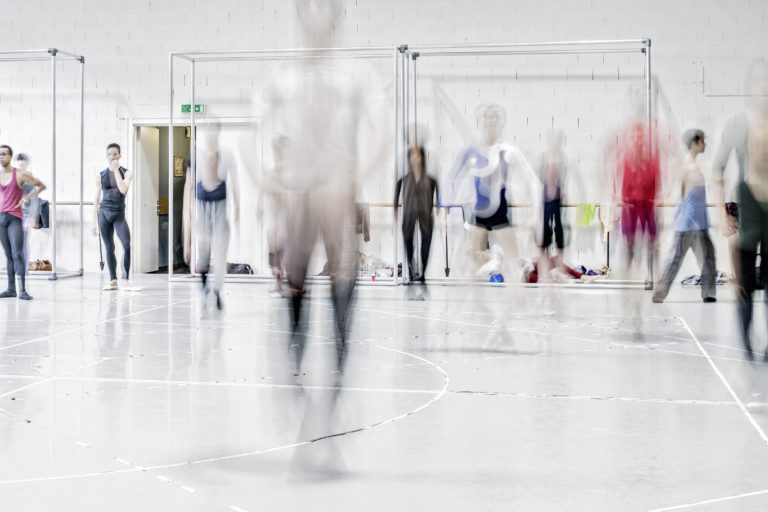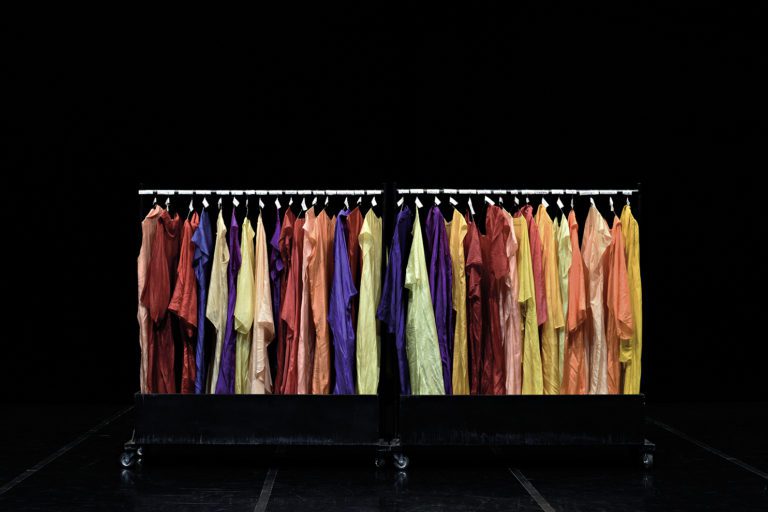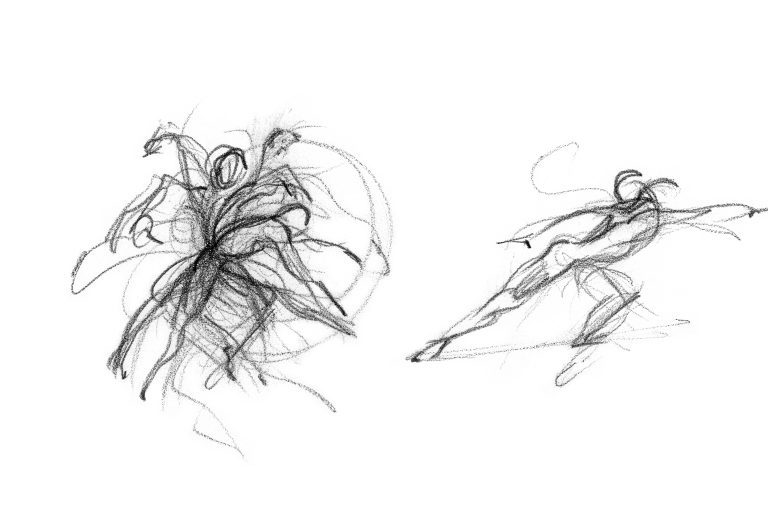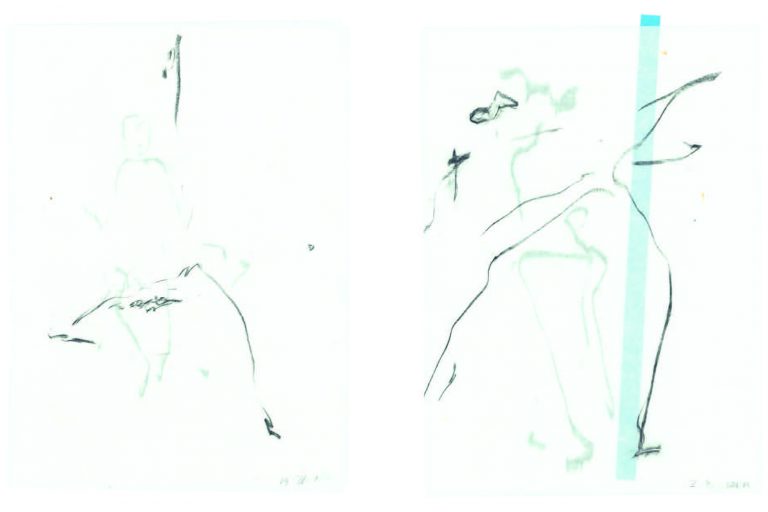David Curchod
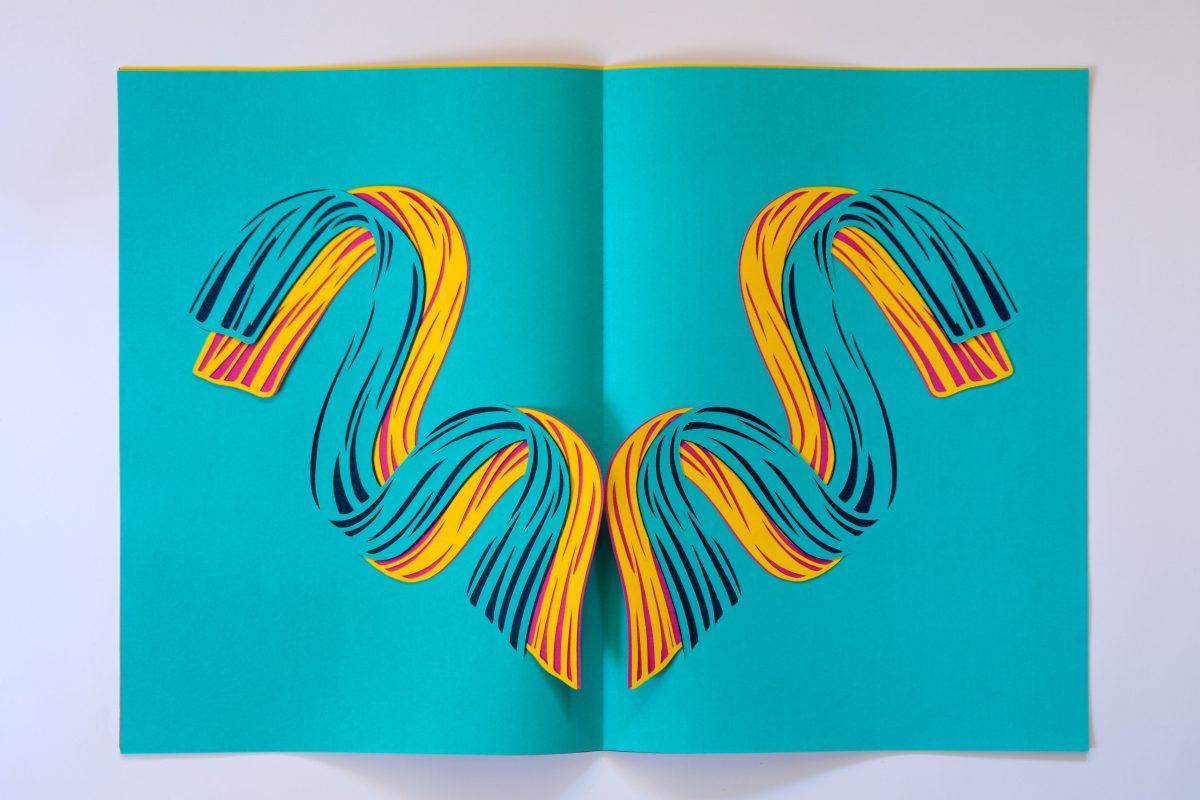
Twice a year, the Béjart Ballet Lausanne invites a Swiss artist to create its own art project in line with the company during the rehearsals in its studios.
Resilient Fragility
Pay attention! David Curchod is equipped with a stunning, razor-sharp blade that inspects and dissects. Flesh, transparencies, truths, nothing offers resistance as he carves out the poetic mass held together only by a strand, the fragility of forms and things. The being emancipates itself, singular, unusual, strange—funny too—and above all, frees itself from the laws of appearances. But let’s be on guard…the Lausanne native is endowed with an unmatched acuity in his figurative arsenal. He selects whatever he wants from existence, the human or vegetable kingdom or even a dogma from which he recomposes, literally or figuratively, the thickness of codes and realities.
This slicing precision, reminding us of the very Swiss tradition of cutting paper, allows the forty-year-old man to turn it into a very personal language from which he draws other meaningful layers and worlds where other stories can be projected on. His own. Ours. Whether he cuts out a pope, an African dictator, an Italian countess, leaving them only with very ornamental substance. Whether he steals the tangible form of a foliage or the aquatic depths to give them their own reflection, each time he creates a space of freedom and enshrines a new landscape.
This desire for paper, an “easy and cheap” material, came to him by force of circumstance while the paint he was using, his first weapon to conquer sensitivity, resisted him as it wouldn’t dry in a cold workshop. This desire, beyond its fatality, has become fundamental to him since the early 2000s. Urgent, even. He talks about it, yes, with the passion of smugglers. Happily even. Not hiding that to do so, he would like to rely on the words he learned from the peers he admires! Shy, he interrupts it. Above all, he is driven by the urge to return to his work table and the euphoria of creation. “It’s my writing, the further I go, the more I think it’s her when I see the possibilities that remain to be explored. Paper, in addition to being a fascinating medium, allows you to make mistakes. And when it happens, I make them again, it doesn’t even bother me.”
Nature, men, the tingling of one, the wandering of the other, their cuts intertwine more and more and end up blending together. The movement is both supportive and repulsive, the dance becomes miraculous. This dance is born out of the obsession to blur the tracks so that the image frees itself from the usual diktats and that the time spent gazing becomes “as personal as possible”, this dance bears the mark of an artist caught up in the need to move forward and dig his furrow, while preserving sharp subtlety. His mastery isn’t limited to the precision of his cuts, it forges itself in the art of drawing from the entirety to sublimate the whole. David Curchod does exactly that by opening the book of this Nutcracker, by turning pages in sections, by colouring it with vivid feelings, by giving power to one word or another, to one gesture rather than another: he leads us both inside and outside Maurice Béjart’s work.
Florence Millioud Henriques (24heures)
